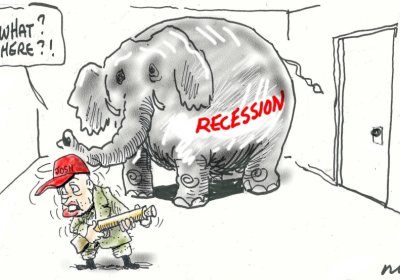The Reserve Bank of Australia claims it is “fighting inflation” by hiking up interest rates. But, as Zane Alcorn argues, it has never been independent of the capitalist class and is dutifully carrying out its interests.
Philip Lowe
National accounts figures released by the Australian Bureau of Statistics (ABS) on September 4 show economic growth was slower over the 2018–19 financial year than at any time in the past 10 years.
Nearly 100 workers at Note Printing Australia (NPA) in Craigieburn, which is owned by the Reserve Bank of Australia (RBA), were locked out by their employer on August 10.
The workers have been campaigning for a wage rise of 3.5%. Their demand is in line with the appeal made by RBA Governor Philip Lowe to federal parliament in February, when he said that a generalised wage rise of 3.5% would help stimulate economic activity.
Federal Treasurer Scott Morrison says inequality in Australia is falling, and accuses Labor of pursuing a dishonest campaign based on the "politics of envy". Morrison claims Opposition Leader Bill Shorten's statement that inequality has reached a 75-year high is a "lie".
How bad are things today when even the head of the Reserve Bank of Australia agrees workers are feeling too insecure to demand wage rises.
Speaking at the Australian National University on June 19, Reserve Bank governor Philip Lowe said: “People value security and one way you can get a bit more security is to not demand a wage rise.” Although his argument was about the impact on economic growth, it highlights the level of insecurity felt by workers today.
Reserve Bank governor Philip Lowe has called on workers to start demanding pay rises.
Lowe said on June 19 Australia’s economy is suffering a “crisis” in wage growth and the relatively low unemployment rate means workers should start asking for a larger share of the nation’s economic pie.
His call comes as data shows the share of national income going to workers has fallen to a 50 year low and the underemployment rate, where workers want to work more hours, rose to 8.8%.
Underemployment has now risen for the past six consecutive quarters.





